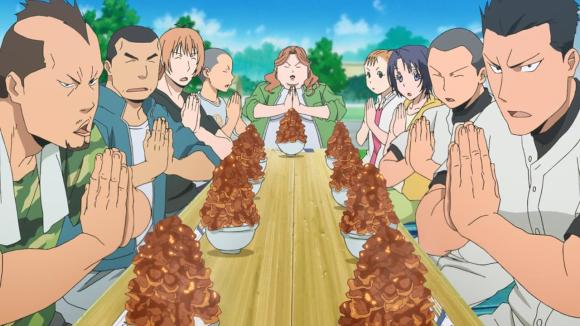
If you’re an enthusiastic linguaphile like myself, you probably spend a good part of each day A) Thinking up ways to make your friends groan yet again with all your linguistic knowledge (e.g. dressing up as a “dead language” for Halloween), and B) Getting super excited whenever you discover the etymology of a new word (also, C) Debating which flavor of ice cream to buy based solely on how witty its name is).
One of my favorite linguistically related topics to contemplate is the constant borrowing of words and shifts in meaning that takes place among the world’s languages. Students of Japanese are often surprised to discover the huge inventory of ‘loan words’ in Japanese that were borrowed from English which have often either changed drastically from their original pronunciations or are combined in different ways to create new, Japanese-made English terms.
But how about the flip side of that–Japanese words that have been imported into other languages? Join us after the jump for a look at some of them!
The following list of common Japanese terms ‘borrowed’ by other languages was originally compiled by Japanese website CuRAZY. The site also provided a short list of countries where the terms can supposedly be understood by the general population, which we’ve included in parentheses. These listings are intended to serve as examples of places where the words have gained ground, and do not denote the sole countries that use them.
The list also excludes names of Japanese food dishes, since there would be hundreds of entries if we included them. Happy word reading!
1. Otaku/オタク (America, France, Russia)
You might want to think twice about wearing a shirt that boldly proclaims “I’m an otaku” if you ever visit Japan. The big difference is that overseas, otaku generally denotes a fan of Japanese manga or anime, while in Japan the word has a negative connotation.
2. Sensei/先生 (France, Taiwan, Russia)
Didja know? Sensei literally means “a person born before another.” In Japanese, it’s used as an umbrella term for teachers, doctors, and others of a professional nature–even comic book authors! A large part of its recognition overseas is thanks to its prevalence in popular anime and manga, as well as anyone who practices Japanese martial arts (that includes those of you raised during the Karate Kid generation).
3. Mottainai/もったいない (America, various European countries, Kenya)
To be honest, I was a bit surprised by this one. We’d previously considered including it on our list of Japanese phrases with no true English equivalent, but that doesn’t mean that the word has become a permanent fixture in English. I can’t think of a single person (at least where I’m from in the States) without a working knowledge of Japanese who would know what you’re talking about if you casually said mottainai.
However, I made a discovery after doing some digging. Apparently the word was spread over the globe when Kenyan environmental and political activist Wangari Maathai used it during her Mottainai Campaign to promote environmental conservation. She went on to become the first African woman to receive the Nobel Peace Prize in 2004. I still don’t think the average American off the street would understand it, though.
4. Zangyō/残業
I have a feeling that many people have heard about the Japanese culture of working overtime, but that doesn’t necessarily mean that they’re familiar with the Japanese word itself. Have you ever heard anyone refer to zangyō in a non-Japanese language context?
5. Keiretsu/系列 (America, various European countries)
This term refers to the Japanese business network of “a conglomeration of businesses linked together by cross-shareholdings to form a robust corporate structure.” Maybe people in the business world are familiar with the word, but again, I don’t think the average Joe Cool would know it…
6. Kaizen/改善 (America, Canada, Thailand)
More business lingo, this time to denote the Japanese business philosophy of continuous improvement. It gained familiarity as being one of car company Toyota‘s main buzzwords.
7. Kōban/交番 (Brazil, Singapore, America)
Kōban are the small, local police stations scattered throughout Japanese cities. Many other countries have grown fond of this neighborhood police system, and the word has consequently made its way outside of Japan, particularly in Brazil.
8. Daikon/ 大根 (Various European countries, America)
A white vegetable that’s becoming more prevalent in supermarkets outside of Asia, it’s usually sold under the label “daikon radish.” I’ve even noticed it popping up in grocery stores around where I live. I mean, c’mon, who doesn’t like a vegetable that you can both eat and create culinary art with?
9. Shōgun/将軍 (America, Canada)
The title of the supreme military commanders throughout much of Japanese history. The word was popularized by James Clavell’s 1975 eponymous novel/TV miniseries, which is loosely based on the exploits of an actual Englishman (William Adams) who found himself stranded in feudal Japan. Kids nowadays probably recognize it more from various historical Japan-themed video games.
10. Bushidō/武士道 (America, France, Russia)
This modern term was invented to describe the way of life for samurai, including key concepts such as “loyalty,” “honor,” and “courage.” Typically translated into English as “the samurai’s way/the way of the warrior,” the actual Japanese term bushidō has become just as common in many parts of the world. Bushidō even served as an underlying philosophy for the Jedi Knights in the Star Wars franchise.
11. Shio taran/塩足らん (Hungary)
Are there any Hungarian speakers reading this? I was perplexed to see this colloquial way of saying “It’s not salty enough” on the list. The Japanese article even suggests trying it out at a Hungarian restaurant when your food doesn’t have enough salt added to it. I’d appreciate it if anyone could either confirm its actual use outside of Japan or explain how this phrase found its way into Hungary so that thinking about it doesn’t keep me up at night…
12. Shiatsu/指圧 (America, Europe, Thailand)
Shiatsu literally means “finger pressure,” and is a form of traditional medicine in which the whole body is stimulated along meridian lines using “finger and palm pressure, stretches, and other massage techniques.” Tokujiro Namikoshi is considered to be the founder of modern shiatsu and is said to have given shiatsu treatments to both Marilyn Monroe and Muhammad Ali.
13. Haiku/俳句 (Peru, Malaysia)
I was waiting for this one to pop up! I remember learning the structure of a haiku and writing my own during language arts class as far back as fifth grade. I think people from many countries are familiar with haiku as a form of short Japanese poetry. If anything’s a good indicator, it’s not even showing up as a misspelled word in my word processor as I type this! My personal favorite haiku is a piece by the master Matsuo Bashō during his journey to the northern regions of Japan in the late 1600s. It’s about silence pierced only by the sound of cicadas near Yamagata Prefecture’s Yamadera, near where I used to live:
閑さや 巖にしみ入る 蝉の声
The deep stillness/seeps into the rocks/the shrill cries of cicadas
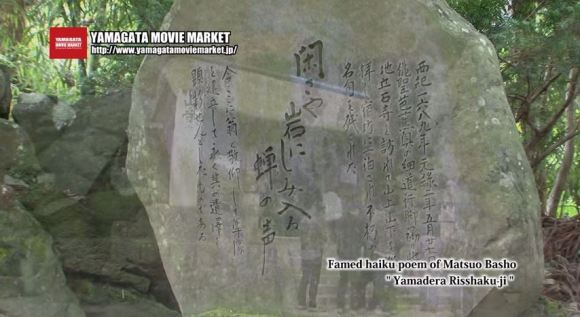
14. Sukoshi/少し (Taiwan, Palau)
According to the article, it’s pronounced as “skosh” but has the same meaning of “a little” locally. Care for “skosh” yakiniku, anyone?
15. Karaoke/カラオケ (Russia)
I tend to think of karaoke as a word which everyone knows, and sometimes don’t even realize originally comes from Japanese (of course, the English pronunciation, ka-ree-oh-kii, is quite different). The very act of enjoying karaoke is different as well–many Westerners think of it as a solitary experience to embarrass yourself in front of strangers, with no concept of the popular karaoke rooms you can book in Asia with only your close friends and coworkers around to hear you sing off-key.
16. Ichirō Mizuki /水木一郎 (France, Taiwan)
I’m not sure if this one should count, since it’s technically a person’s name–the stage name, to be exact, of a popular vocalist known for his work on anime theme songs and tokusatsu films over the decades. Mr. Mizuki has also earned himself the epithets “Emperor of Anime Songs” and “Aniking” from his legions of fans around the world.
17. Kudaranai koto bakari iu/くだらないことばかり言う (Iran)
Here’s another one that left me scratching my head. How did this Japanese phrase, which means something like “they only say trivial/pointless things,” make its way into Persian/Farsi, specifically? The Japanese article also says that it’s taken on the meaning of having a “devil-may-care attitude, or being untidy, ill-groomed,” and suggests using it on any of your particularly slovenly Persian-speaking friends. Hmm…
18. Itadakimasu/いただきます (Canada, France, Palau)
Let’s end this list with the expression of gratitude that Japanese people say before eating a meal. If you’ve ever seen any Japanese TV shows or movies that involve people eating, you’re bound to have heard this one at some point (people often clap their hands together while saying it). A related term is gochisōsama deshita, which is said in thanks after finishing a meal.
From my end, I’d like to add futon (which has shifted meaning in English), tsunami, and all of those traditional sports/martial arts-related terms (karate, judō, kendō, dōjō, etc.) to the list. Other words that are inextricably tied to Japanese culture, such as kimono or tatami, have also made their way into different lexicons.
What other words can our astute readers come up with? Let your thoughts flow in the comments section below!
Source: CuRAZY



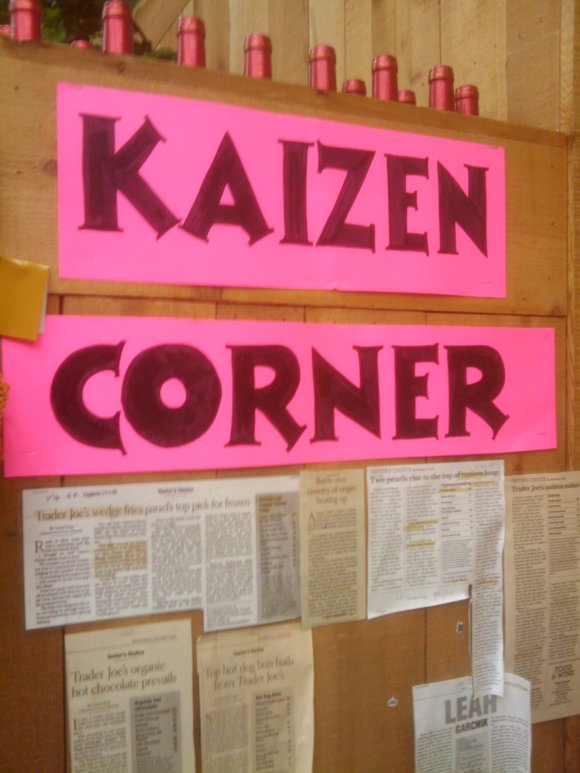
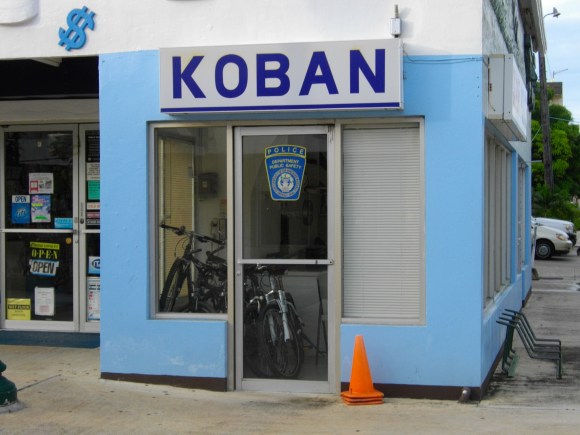
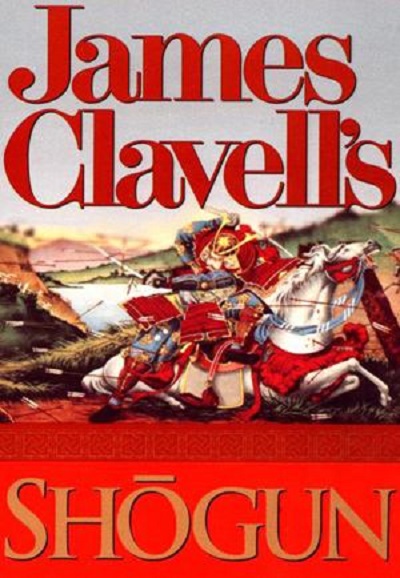
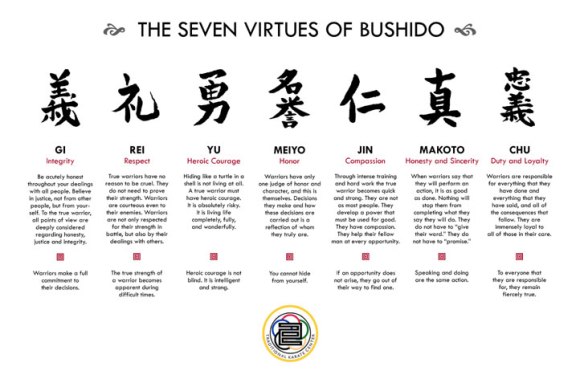
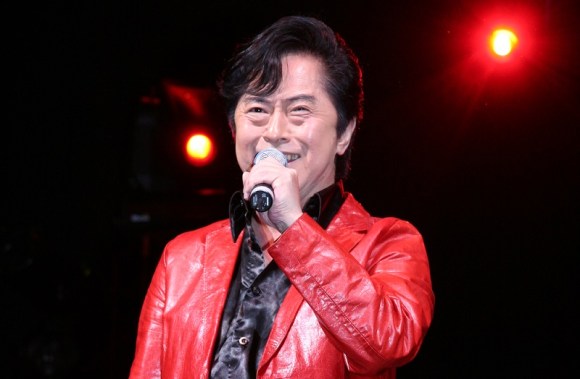
 Five words that sound completely different across Japanese regional dialects
Five words that sound completely different across Japanese regional dialects 11 different ways to say “father” in Japanese
11 different ways to say “father” in Japanese Top 10 most irritating Japanese borrowed words – Part 2 (The people’s top 10)
Top 10 most irritating Japanese borrowed words – Part 2 (The people’s top 10) Japanese Internet sad to see the word “chikan” becoming commonly used in English
Japanese Internet sad to see the word “chikan” becoming commonly used in English The Japanese you learn at school vs the Japanese used in Japan【Video】
The Japanese you learn at school vs the Japanese used in Japan【Video】 McDonald’s new Happy Meals offer up cute and practical Sanrio lifestyle goods
McDonald’s new Happy Meals offer up cute and practical Sanrio lifestyle goods More foreign tourists than ever before in history visited Japan last month
More foreign tourists than ever before in history visited Japan last month All-you-can-drink Starbucks and amazing views part of Tokyo’s new 170 meter-high sky lounge
All-you-can-drink Starbucks and amazing views part of Tokyo’s new 170 meter-high sky lounge Starbucks reopens at Shibuya Scramble Crossing with new look and design concept
Starbucks reopens at Shibuya Scramble Crossing with new look and design concept Beautiful Sailor Moon manhole cover coasters being given out for free by Tokyo tourist center
Beautiful Sailor Moon manhole cover coasters being given out for free by Tokyo tourist center The oldest tunnel in Japan is believed to be haunted, and strange things happen when we go there
The oldest tunnel in Japan is believed to be haunted, and strange things happen when we go there Disney princesses get official manga makeovers for Manga Princess Cafe opening in Tokyo
Disney princesses get official manga makeovers for Manga Princess Cafe opening in Tokyo Is the new Shinkansen Train Desk ticket worth it?
Is the new Shinkansen Train Desk ticket worth it? Arrest proves a common Japanese saying about apologies and police
Arrest proves a common Japanese saying about apologies and police An extremely simple trick to spice up plain rice for a refreshing, citrusy summer treat
An extremely simple trick to spice up plain rice for a refreshing, citrusy summer treat We try out “Chan Ramen”, an underground type of ramen popular in the ramen community
We try out “Chan Ramen”, an underground type of ramen popular in the ramen community Beautiful new Final Fantasy T-shirt collection on the way from Uniqlo【Photos】
Beautiful new Final Fantasy T-shirt collection on the way from Uniqlo【Photos】 Foreign English teachers in Japan pick their favorite Japanese-language phrases【Survey】
Foreign English teachers in Japan pick their favorite Japanese-language phrases【Survey】 There’s a park inside Japan where you can also see Japan inside the park
There’s a park inside Japan where you can also see Japan inside the park Japanese convenience store packs a whole bento into an onigiri rice ball
Japanese convenience store packs a whole bento into an onigiri rice ball Studio Ghibli releases Kiki’s Delivery Service chocolate cake pouches in Japan
Studio Ghibli releases Kiki’s Delivery Service chocolate cake pouches in Japan Japan’s bone-breaking and record-breaking roller coaster is permanently shutting down
Japan’s bone-breaking and record-breaking roller coaster is permanently shutting down New definition of “Japanese whiskey” goes into effect to prevent fakes from fooling overseas buyers
New definition of “Japanese whiskey” goes into effect to prevent fakes from fooling overseas buyers Foreign passenger shoves conductor on one of the last full runs for Japan’s Thunderbird train
Foreign passenger shoves conductor on one of the last full runs for Japan’s Thunderbird train Our Japanese reporter visits Costco in the U.S., finds super American and very Japanese things
Our Japanese reporter visits Costco in the U.S., finds super American and very Japanese things Kyoto bans tourists from geisha alleys in Gion, with fines for those who don’t follow rules
Kyoto bans tourists from geisha alleys in Gion, with fines for those who don’t follow rules Studio Ghibli unveils Mother’s Day gift set that captures the love in My Neighbour Totoro
Studio Ghibli unveils Mother’s Day gift set that captures the love in My Neighbour Totoro Domino’s Japan now sells…pizza ears?
Domino’s Japan now sells…pizza ears? New Japanese KitKat flavour stars Sanrio characters, including Hello Kitty
New Japanese KitKat flavour stars Sanrio characters, including Hello Kitty Sales of Japan’s most convenient train ticket/shopping payment cards suspended indefinitely
Sales of Japan’s most convenient train ticket/shopping payment cards suspended indefinitely Sold-out Studio Ghibli desktop humidifiers are back so Totoro can help you through the dry season
Sold-out Studio Ghibli desktop humidifiers are back so Totoro can help you through the dry season Japanese government to make first change to romanization spelling rules since the 1950s
Japanese government to make first change to romanization spelling rules since the 1950s Ghibli founders Toshio Suzuki and Hayao Miyazaki contribute to Japanese whisky Totoro label design
Ghibli founders Toshio Suzuki and Hayao Miyazaki contribute to Japanese whisky Totoro label design Doraemon found buried at sea as scene from 1993 anime becomes real life【Photos】
Doraemon found buried at sea as scene from 1993 anime becomes real life【Photos】 Tokyo’s most famous Starbucks is closed
Tokyo’s most famous Starbucks is closed One Piece characters’ nationalities revealed, but fans have mixed opinions
One Piece characters’ nationalities revealed, but fans have mixed opinions We asked a Uniqlo employee what four things we should buy and their suggestions didn’t disappoint
We asked a Uniqlo employee what four things we should buy and their suggestions didn’t disappoint Princesses, fruits, and blacksmiths: Study reveals the 30 most unusual family names in Japan
Princesses, fruits, and blacksmiths: Study reveals the 30 most unusual family names in Japan Studio Ghibli’s new desktop Howl’s Moving Castle will take your stationery on an adventure
Studio Ghibli’s new desktop Howl’s Moving Castle will take your stationery on an adventure BuzzFeed’s video of “anime expressions” delivers more laughs than useful language pointers
BuzzFeed’s video of “anime expressions” delivers more laughs than useful language pointers English conversation school in Japan has clever reminder that students don’t have to be perfect
English conversation school in Japan has clever reminder that students don’t have to be perfect Katsu isn’t curry! Four kinds of katsu, and three delicious ways to eat them【Video】
Katsu isn’t curry! Four kinds of katsu, and three delicious ways to eat them【Video】 How should a guy say “I” in Japanese? Japanese women give their opinions【Survey】
How should a guy say “I” in Japanese? Japanese women give their opinions【Survey】 How do you say ‘Google it, you trash’ in British English? Answer surprises many in Japan
How do you say ‘Google it, you trash’ in British English? Answer surprises many in Japan 10 Japanese words you know now that irritate some Japanese businessmen (because they’re English)
10 Japanese words you know now that irritate some Japanese businessmen (because they’re English) Foreign shop clerk and Japanese customer fail to communicate because of Japanese language quirk
Foreign shop clerk and Japanese customer fail to communicate because of Japanese language quirk Yahoo! Japan finds most alphabetic and katakana words Japanese people want to find out about
Yahoo! Japan finds most alphabetic and katakana words Japanese people want to find out about Wait, the Japanese word daijoubu can mean both “yes” and “no?” Why? HOW?!?
Wait, the Japanese word daijoubu can mean both “yes” and “no?” Why? HOW?!? Adorable dog plushie from Japan looks 100-percent like actual dog, but nothing like you’d expect
Adorable dog plushie from Japan looks 100-percent like actual dog, but nothing like you’d expect Seven amazing things our Japanese reporter learned while visiting Cuba
Seven amazing things our Japanese reporter learned while visiting Cuba Struggling with Japanese? Let Tako lend you a hand…or five
Struggling with Japanese? Let Tako lend you a hand…or five The top 10 hardest Japanese words to pronounce – which ones trip you up?【Video】
The top 10 hardest Japanese words to pronounce – which ones trip you up?【Video】 Japanese McDonald’s phone prank raises hackles online
Japanese McDonald’s phone prank raises hackles online 30 common characteristics of people who fall in love with Japan
30 common characteristics of people who fall in love with Japan
Leave a Reply